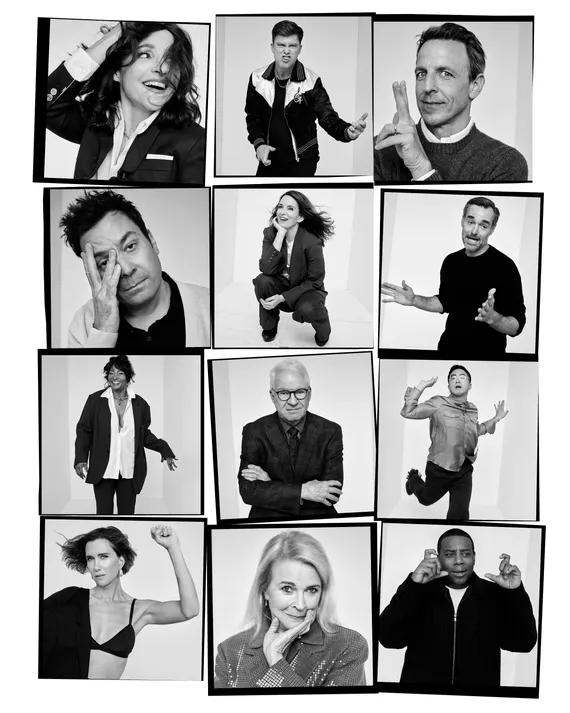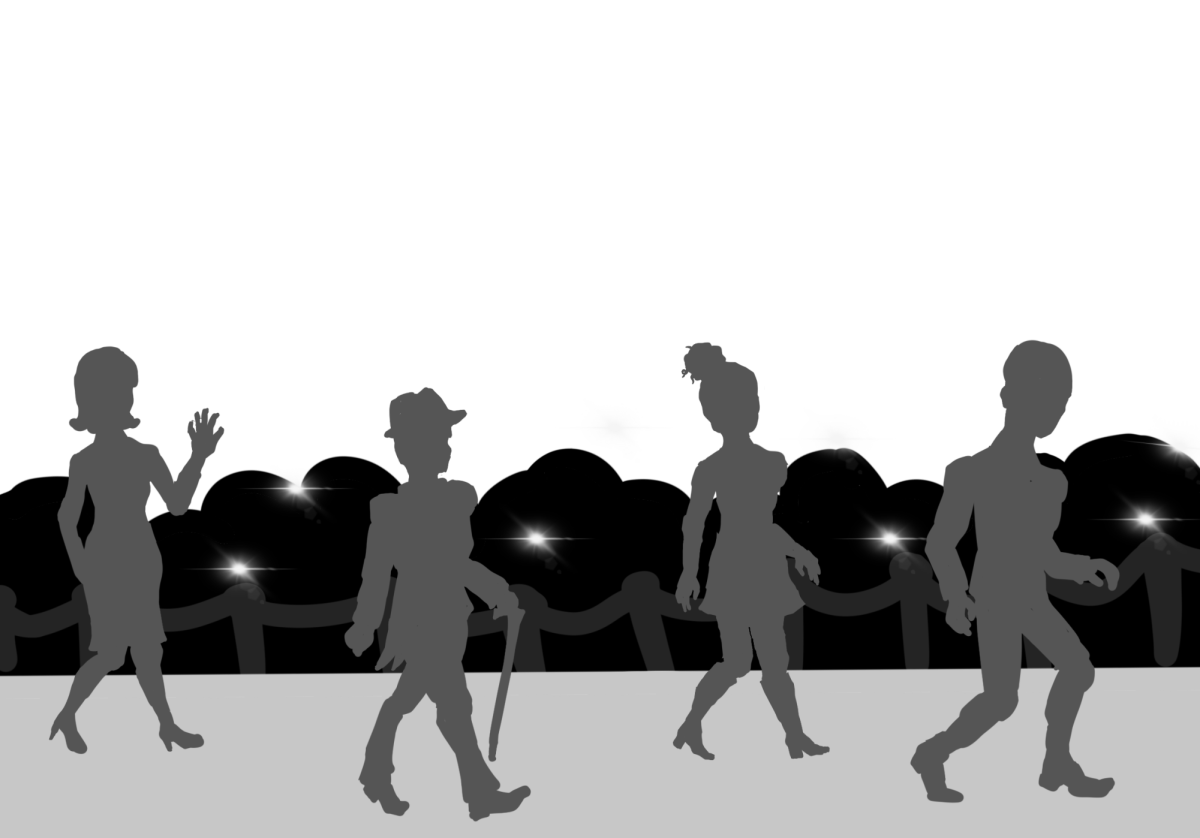Fifty years of laughing at each other. Fifty years of laughing at ourselves. Fifty years of comedy serving a vital role in society by allowing us to tackle tough topics in an approachable way. Since the beginning, Saturday Night Live (SNL) has continued to develop its lasting legacy as one of the most iconic American television series in history.
This year celebrates it’s iconic success, however, the show’s popularity didn’t skyrocket right after its debut on October Eleventh, 1975. In fact, it got off to a relatively shaky start, mostly because people were unsure of how to react to the unconventional humor. SNL was unlike anything else on television at the time, so it makes sense that the unique style and controversial tone struck some as inappropriate. After a few seasons, however, more people got on board and became more comfortable laughing at both serious and ridiculous topics. The show’s initial audience was mostly young people who were fascinated by its ability to break away from traditional television. The combination of blunt humor, political satire and fearlessly challenging societal “norms” continues to speak to younger generations with modern ideas about the world.
If we zoom out to the big picture of SNL, there are a few main components that contributed to the show’s great triumph. SNL’s original cast, known as the “Not Ready for Prime Time Players,” undeniably brought a new kind of comedy to the screen. Some of the biggest names in the comedy industry were born on SNL’s stage: Chevy Chase, Dan Aykroyd, Gilda Radner, Jane Curtin, Lorraine Newman and John Belushi, to name just a few of the now household names. This group embodied what SNL stood for in its writing and acting that was constantly testing the “status quo.” The writers and actors confronted a large range of topics including politics and race, which were not typically open to discussion at the time. Certain staples of SNL, like the opening monologue and Weekend Update, have remained, providing a familiar flow to the show over the years. Nevertheless, the iconic original cast is easily recognizable as key to SNL’s success story.
Not only is the cast a large component of the SNL phenomenon, but the actual structure of each episode makes it unique. Every show is led by a famous host, often an actor, comedian or music star of the day. The host presents a timely monologue to open the episode which sets the tone and provides a smooth transition into the rest. Another signature feature of SNL is the musical guest, who typically performs two songs in between sketches and commercials. Being asked to step into the role of either of these positions has always been considered a prestigious honor. Some of the most well known celebrities of all time have served on SNL as hosts, including Steve Martin, Tom Hanks, Chris Rock, Melissa Mcarthy, Jimmy Fallon, Tina Fey and many more. Similarly, SNL has scored some of the most famous musicians in the world to perform on the show, like Prince, Whitney Houston, Beyoncé, David Bowie, Paul McCartney and Taylor Swift. Ultimately, securing a host or musical guest spot on SNL is considered the ultimate sign of success in the entertainment industry.
In our current unstable times, comedy serves as a safe platform to discuss uncomfortable topics. Through satire, parody, and humor, SNL is able to shed light on situations that are typically considered bleak. Furthermore, by addressing pressing issues in an approachable way, the show has helped educate its audience and spark further conversation about important current events and political matters. Around the time of the previous election, for example, SNL created sketches highlighting the candidates and other relevant politicians. One of the most memorable and noteable portrayals of a candidate was Maya Ruldolph’s impression of Kamala Harris. Her take on the politician was highly accurate, as she was able to capture Harris’s spirit through her signature laugh and lose smile. Rather than focusing too much on achieving the funniest skit, the overarching purpose of the scene was to convey to the American public the weight of each individual vote in the close election. Blending satire and sincerity ultimately allowed, and continues to allow SNL viewers to laugh at the absurdities of the election while still considering the seriousness of their decisions.
All in all, SNL has been a place for creating laughs and narratives around the day’s biggest issues. We certainly can expect to be laughing at each other and ourselves for another 50, especially taking into account today’s political climate. While comedy is often labeled as a flippant and superficial method for addressing problems, it has already proven itself as a valuable tool for tackling the most uncomfortable topics. SNL’s legacy will continue to help shape our culture, proving that laughter is not only powerful but also necessary for navigating through society’s greatest challenges.







